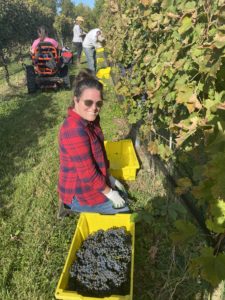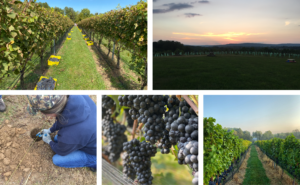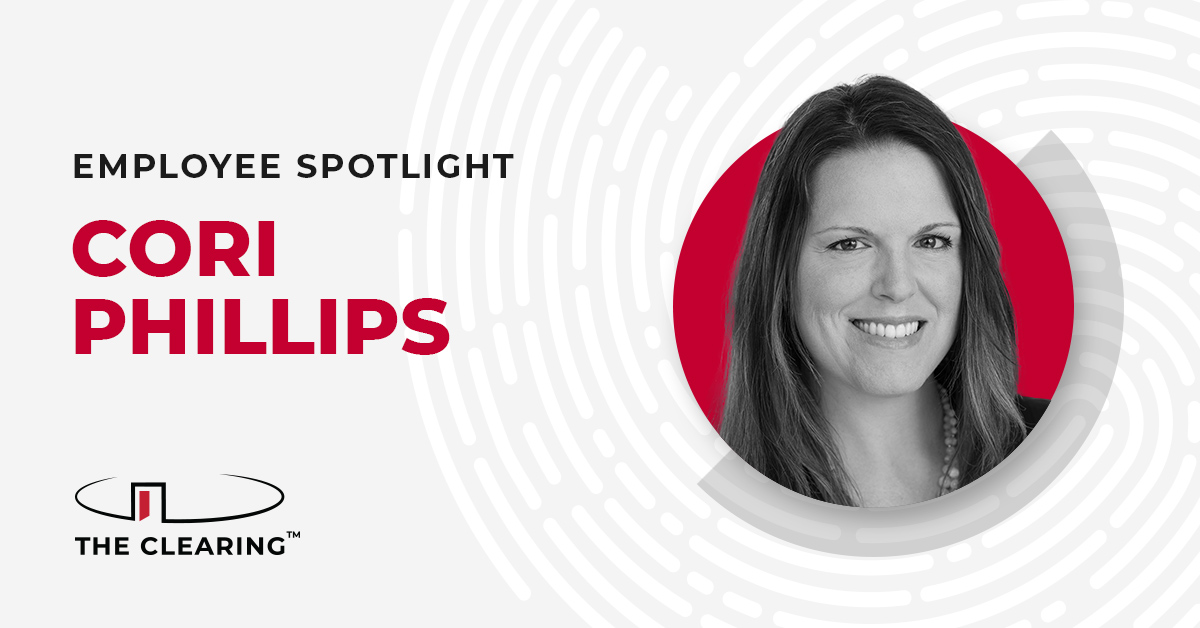TC consultants Andrea Bachinski and Abbie Beekman recently wrote about the overlap between their former careers in the arts and their current consulting roles. Today, we talk to Cori Phillips about the overlap she’s encountered between consulting and another art: winemaking. Cori is a principal consultant here at The Clearing; she’s also a winemaker and owner of The Wine Reserve at Waterford in Loudoun County, VA.
Tell Us About Your Consulting Journey
I have been in consulting for almost 15 years and for the most part, worked with government clients. I love that as a consultant, you get to meet people from a variety of backgrounds facing a variety of problems. I have always enjoyed partnering with leaders and working together to address whatever the challenge may be.
My first consulting job was with DHS in a startup office called the Office of Emergency Communications (OEC). I worked with them to get their office set up. Since then, I’ve worked with EPA, GSA, HHS, and other federal agencies. My primary focus has been on strategic communications, change management, and program management support.

So, What Actually Came First: Consulting or Wine?
Well, my love of wine started long before my consulting career. But my consulting career started before my wine career! However, consulting was part of what gave me the confidence to take the leap into winemaking. It helped me develop my business acumen and that’s when I started thinking, after many visits to many wineries, “Wouldn’t it be great if I could combine my love of wine with the business side of things?” Fortunately, my husband and I were on the same page. So began my wine journey in the wine business.
As we visited more and more wineries, we began to more actively consider trying it on our own. But we had no industry experience, so those conversations would begin and end in the winery. Over time, however, they began to carry over into our daily lives. I decided that before we make an investment into winemaking, I should probably see what working in that business was like. So, on the weekends, I worked in tasting rooms at wineries to get a sense of what it was like.
That begat our original plan, which was to buy some land in Northern Virginia and start from scratch. Northern Virginia is a burgeoning wine region, and it was pretty perfect as far as we were concerned because our families and jobs were in the area. I hate to call the area up and coming, but it is compared to Napa or Sonoma. It is a very young industry here. There is still a lot of room for creating, exploring, and introducing people to wine.
So, we thought we would buy some land or some grapes, make some wine, and open a tasting room. After a couple of years of driving around looking at properties, we found a quote-unquote “fixer-upper” winery in Loudoun County. We looked at it and said, “Wow, this is going to require a lot of work, but it has a lot of potential.” However, it was far beyond our means to purchase. We decided to keep looking for our own little plot of land, but I kept in touch with the folks who owned the property. After about a year of it sitting on the market, they called us and somehow we were able to pull together the resources and made it happen. And that’s how The Wine Reserve came to be.
Tell Us About The Wine Reserve
It’s been an adventure! We knew we wanted to make wine with 100% local grapes from Loudoun County, but we came at it backwards from how we expected. Instead of buying property and building a tasting room as planned, we bought a property that already had the tasting room – plus some wine and grapes! However, we quickly realized that sourcing all our grapes from Loudoun wouldn’t be easy – but it remained our goal.
It reminded me of working with consulting clients who have a defined goal and a specific idea of how to achieve it, only to find out the path isn’t as clear as they thought. Sometimes all they need is help evaluating the roadblocks and developing an iterative process to hit their mark. So, iterate is what we did.
We started with mostly Virginia grapes, supplemented with California grapes. Eventually, we were able to phase out the California grapes and use only Virginia produce, getting us one step closer. In 2020, after five years, we hit our goal of 100% local, Loudoun grapes. Now, we’re going a step further and growing our own grapes. It didn’t exist at the time, but we could have used the Amperian Cycle to develop the solution to our grape problem! Every harvest, every vintage – it’s all been like the prototyping process.

What Consulting Lessons Do You Apply to Winemaking?
Lots! Here are just a few lessons from my consulting life, each with an anecdote from my experience in winemaking.
- Be Ready to Adapt. Our realtor who sold us the property is also a winery owner and wine grower. Now, whenever he has couples that come to him about buying a winery he always wants us to talk to them. They come in and they’re so well prepared with their business plans and I’m thinking “Oh, that’s lovely.” But speaking from experience, I tell them to be prepared for it to get blown to shreds. Just like prototyping, be ready to adapt to realize your goal.
- The Big Moments Require Lots of Little Moments. Every August a lot of focus gets put on harvest for vineyards. People get excited – movies and documentaries are made about it. And harvest season IS awesome, but it’s just a piece of the work that goes into growing grapes. There is so much work getting to harvest and of course after harvest is over. When it comes to growing grapes, the work never stops – it’s something you’re always working on. A good crop this year doesn’t guarantee a good harvest in the future – you’ve got to do all the little things to keep it good. It’s why viticulture reminds me of organizational culture. As my colleague Jason Miller will tell you, just like a good harvest, good culture doesn’t happen on its own. It takes work to develop and maintain. And just because you have “good culture” this year doesn’t mean it will automatically stay that way the next. So, make sure you put in the little moments, whether it’s fertilizing or gathering team feedback, so your big moments – harvest season and team member survey results – are what you hoped for.
- People Development is All About Developing Strengths. There are a lot of similarities in the development of people and growing grapes. And a lot of progress happens at the quietest times. Winter is the slow season for grapes. After the hustle of harvest season, the vineyard is relatively quiet. That’s the time you’re out there pruning, doing the groundwork for the next harvest. When you’re pruning, you’re looking for the strongest roots and trying to keep them healthy while cutting away things that will take away from your strengths. It’s really homing in on what are going to be those vines, those roots that are going to yield the best fruit. It’s almost like the CliftonStrengths® Assessment, where we work with people to identify what they do well and then build on that until it’s a strength. And just like viticulture, doing the work in the quiet moments ensures you’re prepared for when the big season – or project – comes along.
- Every Individual is Different. There is a nature-nurture aspect to growing grapes, just as there is when working with or developing people. Consider Cab Franc varietals of a grape. I know, traditionally, what a Cab Franc should taste like. I know what kinds of conditions a Cab Franc needs to thrive – how much rain, how much sunlight. That’s the nature part. It also requires nurture: effective pruning, harvesting at the right time. However, the ideal conditions or intervention aren’t the same for every varietal – just like the same working conditions or feedback style doesn’t work for every individual. Knowing this, in both consulting and grape growing, has helped me harvest better results (pun intended).
- Good Things Take Time. In consulting, you quickly learn good results often take longer than expected to achieve – and if things don’t turn out like you expect, sometimes all it takes is a little more time to get things running smoothly. I’ve learned the same is true with wine. You may have had a great harvest in perfect conditions, but you open that first bottle and it is not as good as you thought it would be. However, wine can get better with age – and oftentimes if you give it time to breathe it does get better. Similarly, in change management, just because something didn’t go the way you planned doesn’t mean you should stop there. Learning from the process and giving something more time to work is often the solution. I once entered a wine into in a competition and it didn’t do as well as I thought it should. And then I waited a year and entered it again and it lived up to those expectations. Like a lot of great outcomes, all it took was a little more time.
As I continue my consulting and winemaking journeys, I’m excited to continue cross-pollinating (another pun intended) ideas between my two worlds. Whether you want to talk strategic communications or Cab Franc, I can be reached at cori.phillips@dev2021.theclearing.com. Or, come visit us at The Wine Reserve in historic Waterford, Va., for a tasting or tour.
